A man of stupendous brilliance.”
— Norman Finkelstein
“A gargantuan influence.”
— Chris Hedges
“ … brilliant … unswerving … relentless … heroic.”
— Arundhati Roy
“Preposterously thorough.”
— Edward Said
“[A] fierce talent.”
— Eduardo Galeano
“An intellectual cannon.”
— Israel Shamir
“A lighthouse over a sea of hogwash.”
— Kathleen Cleaver
 He had a disarming frankness, a toothy grin, a dazzling mind that never rested.
He had a disarming frankness, a toothy grin, a dazzling mind that never rested.
He always felt completely out of tune with the world. At ten, he published his first article (in the school paper) – a lament on the fall of Barcelona to Franco. At thirteen, he was haunting anarchist bookstores in New York City and working a newsstand with his uncle, eagerly soaking up everything a brilliant mix of immigrant minds had to offer, by far the richest intellectual environment he was ever to encounter. At sixteen, he went off by himself at the news of Hiroshima, unable to comprehend anyone else’s reaction to the horror. At twenty-four, he abandoned a Harvard fellowship to live on a kibbutz, returning only by chance to fulfill an academic career. At twenty-eight, he revolutionized the field of linguistics with his book, Syntactic Structures. At twenty-nine, he became associate professor at Massachusetts Institute of Technology (and full professor three years later), though his competence with technology was limited to the tape recorder. At thirty-five, he threw himself into anti-war protest, giving talks, writing letters and articles, promoting teach-ins, and helping to organize student demonstrations and draft resistance against the Vietnam War. At thirty-eight, he risked a five-year jail term protesting at the Pentagon, spending the night in jail alongside Norman Mailer, who described him in Armies of the Night as “a slim sharp-featured man with an ascetic expression, and an air of gentle but absolute moral integrity.”[1] At forty, he was the only white face in the crowd at Fred Hampton’s funeral, after the young Black Panther leader was gunned down by the FBI in a Gestapo-style raid.[2]
Such was the early life of America’s greatest dissident intellectual, raised in a deeply anti-Semitic German-Irish neighborhood in Quaker Philadelphia, later awarded an elite linguistics professorship at the center of the Pentagon system at MIT.
Fulfilling a brilliant academic career at the pinnacle of the Ivory Tower, Chomsky railed against his fellow intellectuals’ subservience to power, dismissing pious declarations of Washington’s alleged commitment to freedom, equality, and democracy, with abundant demonstrations of its actual values – greed, domination, and deceit. He forensically examined the claim that the establishment media operate as an objective check on the excesses of the powerful, marshalling overwhelming evidence showing that in fact they are a propaganda service working on their behalf. Laboriously debunking the flood of lies and distortions targeting mass audiences, he transformed dangerous misperceptions of U.S. benevolence into insightful comprehension of imperial reality.
Thus we learned that the Vietnam War was not a noble quest to defend freedom, but a quasi-genocidal assault on a former French colony designed to subjugate a defenseless peasantry; that Israel was not a glorious example of uniquely decent democratic socialism, but a modern Sparta on a path to self-destruction; that the Cold War was not a contest between freedom and slavery, but a shared opposition to independent nationalism, in which a galaxy of neo-Nazi U.S. client states masqueraded as the “Free World.”[3]
Such insights were anathema in academia, and Chomsky quickly earned a reputation as a political crank among his more subservient colleagues (the vast majority), even as he gained considerable stature as a public intellectual in American society at large and internationally. These contrasting perceptions of his credibility made for a striking schizophrenia in how he was evaluated: dismissed as a lunatic by pundits and professors, Chomsky’s political lectures were sold out years in advance to overflow general audiences throughout the world.
Elite commentators who wrote him off as a novice for his lack of credentials in political science contradicted themselves by recognizing him as a genius for his linguistics work, though he had no formal credentials in that field either. Nevertheless, they were right about his genius. When Chomsky first entered linguistics the prevailing model of language acquisition was behaviorist, the assumption being that children acquire language by imitation and “reinforcement” (gratifying responses from others for the correct use of language), which Chomsky immediately realized couldn’t begin to account for the richness of even the simplest language use – obvious from an early age in all healthy children – who routinely manifest patterns of use they’ve never heard before.
When Chomsky subjected the behaviorist paradigm to rational scrutiny it promptly collapsed, replaced by recognition that language capacity is actually innate and a product of maturation, emerging at an appropriate stage of biological development in the same way that secondary sex characteristics not evident in childhood emerge during puberty. Like so many other Chomsky insights, the idea that language capacity is part of the unfolding of a genetic program seems rather obvious in retrospect, but in the 1950s it was a revolutionary thought, vaulting the young MIT professor to international academic stardom as the most penetrating thinker in a field his un-credentialed insights utterly transformed.[4]
At the time, Chomsky appeared to be living the perfect life from a purely personal standpoint. He had fascinating work, professional acclaim, lifetime economic security, and a loving marriage with young children growing up in a beautiful suburb of Boston, an ideal balance of personal and professional fulfillment. But just then a dark cloud called Vietnam appeared on the horizon, and Chomsky – with supreme reluctance – launched himself into a major activist career, sacrificing nearly all of his personal life along the way.[5]
In the Eisenhower years the U.S. had relied on mercenaries and client groups to attack the Vietminh, a communist-led nationalist force that had fought the French and was seeking South Vietnamese independence with the ultimate goal of a re-unification of South and North Vietnam through national elections. Though the U.S. was systematically murdering its leaders, the Vietminh did not respond to the violence directed against them for many years. Finally, in 1959, came an authorization allowing the Vietminh to use force in self-defense, at which point the South Vietnamese government (U.S. client state) collapsed, as its monopoly of force was all it had had to sustain itself in power.
Plans for de-colonization proceeded. The National Liberation Front was formed, and in its founding program it called for South Vietnamese independence and the formation of a neutral bloc consisting of Laos, Cambodia, and South Vietnam, with the ultimate goal of peacefully unifying all of Vietnam. At that point there were no North Vietnamese forces in the South, and no North-South military conflict.[6] That would emerge later, as a direct result of U.S. insistence on subjugating the South.
To head off the political threat of South Vietnamese independence, President Kennedy sent the U.S. Air Force to bomb rural South Vietnam in October 1962 and drive the villagers into “strategic hamlets” (concentration camps), in order to separate them from the nationalist guerrilla movement Pentagon documents conceded they were willingly supporting. This overt act of U.S. aggression was noted in the press, but without a flicker of public protest, which would only come years later.[7]
When Chomsky first began speaking out on Vietnam, venues were scarce and public support for the effort virtually nil. He was actually grateful for the customary police presence, which prevented him from getting beaten up. “In those days, protests against the war meant speaking several nights a week at a church to an audience of half a dozen people,” Chomsky remembered years later, “mostly bored or hostile, or at someone’s home where a few people might be gathered, or at a meeting at a college that included the topics of Vietnam, Iran, Central America, and nuclear arms, in the hope that maybe participants would outnumber the organizers.”[8] The quality of his analysis was extraordinary and Chomsky placed himself “in the very first rank” of war critics (Christopher Hitchens) from the start, helping to spark a mass anti-war movement over the next several years.[9] Unlike “pragmatic” opponents of the war, who justified U.S. imperialism in principle but feared it would not bring military victory in Vietnam, Chomsky called out U.S. aggression by name, sided with its victims, and urged the war be terminated without pre-conditions.
Though a radical departure from establishment orthodoxy, Chomsky’s positions on the war were always carefully thought out, never blindly oppositional. For example, though he opposed the drafting of young men to fight in a criminal war, he was not opposed to a draft per se. In fact, he emphasized that a draft meant that soldiers could not be kept insulated from the civilian society of which they were a part, leading to what he regarded as an admirable collapse of soldier morale when the anti-war movement exposed U.S. intervention in Vietnam as naked aggression. When the draft was terminated in 1973, the Pentagon shifted to a “volunteer” army, that is, a mercenary army of the poor and low-income, which Chomsky regarded as one much less likely to be affected by popular anti-war agitation, even aside from the more serious issue of unjustly assigning responsibility for “national defense” to the most economically exploited sector of the population. For these reasons he felt that a universal draft was to be preferred to a “volunteer” army brought into being by strongly coercive economic forces.[10]
Unlike his establishment critics, Chomsky did not consider class analysis a conspiracy theory, but rather, an indispensable tool in properly accounting for known facts. For example, while there was no national interest in attacking South Vietnam, there very much was an elite interest in suppressing the contagious example of a successful national independence movement in Southeast Asia, as the failure to do so might encourage other countries in the Pacific to “go communist” (i.e., seek independence), which could ultimately have reversed the outcome of WWII in the Pacific had Japan ended up accommodating the officially socialist world instead of Washington.[11]
Given the unanswerable nature of this type of (anti-capitalist) analysis, Chomsky was kept well away from mass audiences. On the rare occasions he did appear in the corporate media, his overwhelming command of relevant fact meant that he couldn’t be distracted or derailed. When interviewers attempted to get him off track, they were quickly confronted by the soft query – “Do the facts matter?” – followed by an informational tsunami leading inexorably to a heretical conclusion.
Given his mastery of evidence and logic, it was frankly suicidal for Chomsky’s establishment critics to confront him directly, which probably accounts for why so few of them ever did. The handful that tried were promptly obliterated by a massive bombardment of inconvenient fact. Since “facts don’t care about your feelings,” all of the latter group were obligated to examine which irrational emotions had encouraged them to adopt the erroneous conclusions Chomsky showed them they held, but none of them did.
William F. Buckley had his error-riddled version of the post-WWII Greek civil war exposed on his own show – Firing Line. “Your history is quite confused there,” commented Chomsky to Buckley’s face, after the celebrated reactionary referred to an imaginary Communist insurgency prior to the Nazis’ Greek intervention.[12]
Neo-con Richard Perle tried to divert his discussion with Chomsky from U.S. intervention and denial of national independence around the world to an analysis of competing development models, an entirely different topic. With no answer for fact and reason, he was reduced to rhetorically asking the audience if it really didn’t find establishment mythology more plausible than what he called Chomsky’s “deeply cynical” arguments revealing the shameful truth.[13]
Boston University president John Silber complained that Chomsky hadn’t provided proper context when mentioning that the U.S. had assassinated Salvadoran Archbishop Oscar Romero, blown up the church radio station, and cut the editor of the independent newspaper to pieces with machetes. Silber neglected to disclose what context could possibly redeem such atrocities.[14]
Dutch Minister of Defense Frederick Bolkestein dismissed Chomsky and Edward Herman’s thesis on capitalist media as a conspiracy theory and Chomsky’s anarchist convictions as a “boy’s dream.” In the course of their debate, however, Chomsky refuted every one of Bolkestein’s charges, while pointing out their complete irrelevance to evaluating the thesis advanced in Herman and Chomsky’s book, Manufacturing Consent, which was the purpose of the debate.
The term “Manufacturing Consent” derives from the public relations industry, the practices of which more than amply confirm Herman and Chomsky’s thesis that under capitalism the broad tendency of the mass media is to function as a propaganda service for the national security state and the private interests that dominate it. In any case, Bolkestein himself confirmed Herman and Chomsky’s propaganda model in his very attempt to refute it, objecting to Chomsky’s allegedly undercounting of killings attributable to Pol Pot (an official enemy of the U.S.) while completely ignoring U.S. client Indonesia’s massacres in East Timor, to which Chomsky had compared the killings in Cambodia. This is exactly what the propaganda model predicts: crimes of state committed by one’s own side will be ignored or downplayed while those of official enemies will be exaggerated or invented, while occasioning great moral indignation, which is never in evidence when one’s own crimes are under discussion.[15]
These four intellectual knockouts by Chomsky appear to have deterred the rest of the establishment pack from even entertaining debating with him.[16] A story told by the late Alexander Cockburn suggests they were actually afraid to do so. “One prominent member of the British intellectual elite,” related Cockburn, warned him not to get into a dispute with Chomsky on the grounds that he was “a terrible and relentless opponent” who confronted central issues head-on and never ceded ground as part of a more complicated maneuver. That was why, explained Cockburn, the guardians of official ideology so often targeted Chomsky with gratuitous vilification and childish abuse: “They shirk the real argument they fear they will lose, and substitute insult and distortion.”[17] (emphasis added)
So unprepared were these establishment mouthpieces to engage in substantive discussion that they actually refused Chomsky the customary right to defend himself even against their repeated personal attacks. After demonstrating that elite assertions about him were no more than vulgar smears, Chomsky found his letters to the editor went unprinted or were mangled beyond recognition by hostile editing.
Rather than take offense, Chomsky shrugged off such treatment as only to be expected. If he hadn’t received it, he often said, he would have had to suspect that he was doing something wrong.
As unperturbed as he was by personal attacks, the same cannot be said of his reaction to propaganda passed off as news. Christopher Hitchens and Alexander Cockburn both told the story of how Chomsky once went to the dentist and was informed that he was grinding his teeth in his sleep. Consultation with Mrs. Chomsky determined that this was not the case. Further investigation found that Chomsky was indeed grinding his teeth, but in the daytime – every morning when he read the New York Times.[18]
The explanation for these disparate reactions is straightforward. Chomsky could see that vilification was infantile and inconsequential and therefore easily dismissed it. But the deadly impact of mass brainwashing made him react with the whole of his being, unconsciously gnashing his teeth at elite hypocrisy.
This fury fed his boundless reading appetite, equipping him with the insurmountable advantage of a lifetime of determined preparation. An avid reader from early childhood, he devoured hundreds, if not thousands, of books growing up, checking out up to a dozen volumes at a time from the Philadelphia public library, steadily working his way through the realist classics – Austen, Dickens, Dostoevsky, Eliot, Hardy, Hugo, Tolstoy, Turgenev, Twain, and Zola – as well as Hebrew literature, including the Bible, and Marxist and anarchist texts.[19]
This insatiable appetite for books continued throughout his life, supplemented by countless other print sources. At home or at work he was always surrounded by enormous stacks of books, more than anyone could read in several lifetimes. The practical results of such a studious life could be amusing. Chomsky himself told the story of how he and his first wife Carol once heard a loud crash at 4:30 a.m., thinking it was an earthquake. In fact, it turned out to be a mountain of books cascading to the floor in an adjoining room.[20]
Though Chomsky could only read a portion of all that he would liked to have read, that portion was of staggering dimensions for any ordinary reader. Aside from the mountain of books he read growing up, according to his wife Carol he read six daily newspapers and eighty journals of opinion, in addition to thousands of personal letters he received from the general public, an important part of his reading load.[21] Before 911, Chomsky spent an average of twenty hours a week on personal correspondence, a figure that probably increased after 911 when interest in Chomsky’s work surged.[22] His longtime personal assistant Bev Stohl confirms that he answered e-mails every night until 3:00 a.m.,[23] while Chomsky himself used to say he wrote 15,000 words a week responding to personal letters, which he drily claimed was “a C.I.A. estimate.” Even subtracting out the writing time for private correspondence, one can see that Chomsky’s reading was beyond enormous, and not at all recreational, a preference that manifested itself early in life when he read a draft of his father’s dissertation on David Kimhi (1160-1236) a Hebrew grammarian,[24] which turned out to be the first step on a complicated path to intellectual stardom sixteen years later with the publication of Syntactic Structures.
Chomsky’s boundless reading appetite appears to have been matched by the public’s appetite to hear him speak. He probably spoke to more Americans in person than anyone else in history, giving political lectures and talks at a staggering rate for nearly sixty years. In the pre-zoom era that meant considerable travel, the demands of which he embraced without complaint, whether driving, flying, or taking the train. In addition to destinations all over the U.S. he also went to Colombia, Palestine, Nicaragua, Ireland, New Zealand, Australia, Canada, India, Mexico, Britain, Spain, France, Cuba, Laos, Vietnam, Japan, Italy, Turkey, and South Africa, among other places activists invited him to visit.
The talks were brilliant, and standing ovations routinely followed them. But the question and answer periods were where Chomsky’s unparalleled mastery stood out. Hour after hour questions were put to him on dozens of different topics, from labor history to union organizing to guerrilla tactics to drone warfare to economic theory to counter-insurgency and popular resistance, and hour after hour he patiently answered with illuminating precision and fascinating detail, at the same time providing an astonishing array of book titles, article summaries, history lessons, revealing quotes, and clarifying context about a seemingly limitless number of political conflicts past and present. His prodigious power of recall was vastly superior to any merely photographic memory, which overwhelms with irrelevant detail, whereas Chomsky always selected from a vast trove of information just what was immediately and historically relevant to a single person’s inquiry, before moving on to the next, and the next, and the next, and the next, in city after city, decade after decade after decade.
The size of his audiences mattered little to him, whether he spoke on a tiny college radio station or in front of thousands at a prestigious university. If anything, the larger audiences – though routine for Chomsky – were less desirable, as they highlighted the discouraging fact that too few intellectuals were willing to take up the challenge of political education and popular organization, a conformist constriction of supply in relation to strong public demand. In short, libertarian socialist Chomsky had no interest in being a “hot commodity,” and the fact that he could be regarded as such represented a failure of the intellectual class to politically engage with the public more than it did any personal merit on his part. Furthermore, as far as merit to his speaking ability goes, Chomsky deliberately refused to cultivate it, shunning oratory and rhetorical flourish in preference for what he called his “proudly boring” style of relying solely on logic and fact. Swaying audiences with emotion, he thought, was better left to propagandists.
This preference for the analytical over the emotionally gratifying was always in evidence with Chomsky. For example, in the early eighties a massive build-up of first-strike nuclear weapons sparked the emergence of the Nuclear Freeze movement, which mobilized enormous popular support for a bilateral freeze (U.S.-U.S.S.R.) in the production of new nuclear weapons by relentlessly focusing public attention on apocalyptic visions of nuclear annihilation.
From the moment the incineration of Hiroshima was publicly announced, of course, Chomsky, too, had recognized the danger of a world wired-up to explode in atomic fury, but he dissented from the view that paralyzing visions of utter destruction were an effective way of achieving nuclear disarmament. On the contrary, Chomsky felt that public attention needed to be focused on imperial policy, not military hardware, as it was policy that produced outcomes.[25] When the Nuclear Freeze movement attracted more than a million people to New York City in 1982 to protest the accelerating nuclear arms race, Chomsky withdrew from the event when no mention was made of Israel’s ongoing invasion and devastation of Lebanon, including the killing of Soviet advisers, a direct incitement to potentially terminal superpower confrontation.[26]
While the Freeze continued to focus laser-like on the awesome destructiveness of nuclear bombs, Chomsky found the approach insultingly simplistic, and expressed no surprise when its efforts were ultimately absorbed into the Arms Control and Disarmament Agency, then headed by Kenneth Adelman, who was given the position after saying in his confirmation hearings that he had never given any consideration to the idea of disarmament.
In spite of dissenting in such ways even from the views of popular movements he sought to encourage, Chomsky’s public stature continued to grow. While subject to an almost complete blackout in the corporate media (for years after the end of the Vietnam War his writings could most reliably be found in the pages of the right-wing magazine Inquiry and the worker-owned and managed South End Press), Chomsky nevertheless won widespread acclaim for his analytical brilliance, tireless activism, and unflagging commitment to exposing the truth. Though he himself downplayed personal accolades, he won praise from a dazzling array of admirers, from learned professors and radical journalists to students, activists, authors, spiritual leaders, political hopefuls, movie directors, musicians, comedians, world champion boxers, political prisoners, international leaders, and awestruck fans throughout the world. With their constant compliments ringing in his ears, it’s doubly remarkable that he never lost his humility.
Physicist Lawrence Krauss remembered being deeply impressed by Chomsky’s consistent willingness to spend an hour of his time talking to him whenever Krauss dropped by his office as a young student at MIT, though Chomsky had no professional obligation to students outside of linguistics. “He showed me a kind of respect I wasn’t anticipating,” said an appreciative Krauss years later, while pronouncing Chomsky’s work “incisive, informative, provocative, and brilliant.”[27]
Activist and journalist Fred Branfman was impressed by Chomsky’s apparent ability to X-Ray vast reams of print and extract the essence for immediate practical use. When Chomsky visited Laos in 1970 to learn about refugees of U.S. saturation bombing of the region, Branfman gave him a 500-page book on the war in Laos at 10:00 one night, and was amazed to see him refute a propaganda point in a talk with a U.S. Embassy official the next day by citing a footnote buried hundreds of page into the text. Branfman was also struck by the fact that, unlike many intellectuals, Chomsky retained access to his deepest emotions. While witnessing Laotian peasants describing the horrific effects of U.S. bombing, he openly wept.[28] Overall, Branfman found Chomsky to be intense, driven, and unrelenting in combating injustice, but also warm, caring, wise, and gentle.
A documentary about Chomsky released in 2003 saluted his amazing productivity, calling him “[a] rebel without a pause,” which was the title of the film. After four decades of public intellectual work featuring eighteen-hour workdays, the MIT professor was well-known for working through the night drinking oceans of coffee, yet somehow still making himself available for morning interviews.[29]
Journalist and friend Alexander Cockburn emphasized Chomsky’s provision of a coherent “big picture” about politics, “buttressed by the data of a thousand smaller pictures and discrete theaters of conflict, struggle and oppression,” all the product of his extraordinary responsiveness to injustice. “Chomsky feels the abuses, cruelty and hypocrisies of power more than anyone,” wrote Cockburn. “It’s a state of continual alertness.”[30]
Famed American author and wilderness defender Edward Abbey wrote that Chomsky deserved the Nobel Prize for Truth, if only one had existed.[31]
British philosophy professor Nick Griffin declared Chomsky “extraordinarily well-informed,” and found the experience of simply talking to him “astonishing.” “He’s read everything and remembered what he’s read,” he marveled.[32]
Referring to the dissident classic, American Power and the New Mandarins, historian and gay rights activist Martin Duberman hailed Chomsky’s seemingly Olympian detachment, his tone so “free of exaggeration or misrepresentation,” his avoidance of “self-righteousness,” and his rare ability “to admit when a conclusion is uncertain or when the evidence allows for several possible conclusions.” Perhaps most remarkably, Chomsky was able, said Duberman, “to see inadequacies in the views or tactics of those who share his position – and even some occasional merit in those who do not,” a rare talent in the best of times and virtually non-existent in the frenzied tribalism so prevalent today.[33]
The brilliant Palestinian scholar Edward Said expressed admiration for Chomsky’s tireless willingness to confront injustice and for the awesome extent of his knowledge. “There is something deeply moving about a mind of such noble ideals repeatedly stirred on behalf of human suffering and injustice. One thinks here of Voltaire, of Benda, or Russell, although more than any of them Chomsky commands what he calls ‘reality’” – facts – over a breathtaking range.”[34]
Pantheon editor James Peck noted a kind of intellectual vertigo in reading Chomsky, finding his critiques “deeply unsettling” and impossible to categorize, as “no intellectual tradition quite captures his voice” and “no party claims him.” Always fresh and original, “his position [was] not a liberalism become radical, or a conservatism in revolt against the betrayal of claimed principles.” He was “a spokesman for no ideology.” His uniqueness, said Peck, “fits nowhere,” which was in itself “an indication of the radical nature of his dissent.”[35]
People’s historian Howard Zinn resorted to leg-pulling irony to describe the Chomsky phenomenon: “I found myself on a plane going south sitting next to a guy who introduced himself as Noam Chomsky…. It occurred to me, talking to him, that he was very smart.” Zinn, a popular speaker himself, was sometimes asked for the latest count of the learned professor’s staggering output of books. He would begin his reply with the qualification, “As of this morning,” and then pause for dramatic effect, drolly suggesting that any number he might offer stood a good chance of being abruptly rendered obsolete by Chomsky’s latest salvo.[36] Daniel Ellsberg was of similar mind, once saying that keeping up with Chomsky’s political work was a considerable challenge, as “he publishes faster than I can read.”[37]
Establishment liberal Bill Moyers was impressed by Chomsky’s apparently greater admiration for the intelligence of ordinary people than for the specialized talents of his elite colleagues. In an interview at the end of the Reagan years he told Chomsky: “[It] seems a little incongruous to hear a man from the Ivory Tower of Massachusetts Institute of Technology, a scholar, a distinguished linguistics scholar, talk about common people with such appreciation.” Chomsky found no paradox at all in this, replying that his appreciation flowed naturally from the evidence provided by language study itself, which demonstrated overwhelmingly that ordinary people have deep-seated creative intelligence that separates humans from every other known species.[38]
Where paradox does exist is in elite intellectuals’ apparently boundless capacity to pervert natural human intelligence into specialized cleverness at serving the ends of power. However, this makes them not the most intelligent part of the population, as they believe themselves to be, but, on the contrary, the most gullible and easily deceived, a point Chomsky made often.
In Chomsky’s final public years the fruit of using our species intelligence to serve institutional stupidity manifested itself in growing threats of climate collapse, nuclear war, and ideological fanaticism displacing all prospect of democracy, calling into question the very survival value of such intelligence.
Helpfully, Chomsky has left us with sage advice about which direction our intelligence should take and also avoid, in order to escape looming catastrophe. As to the first, he said, “You should stick with the underdog.”[39] About the second, he said, “We should not succumb to irrational belief.”[40]
In June 2023, Chomsky suffered a massive stroke, leaving him paralyzed down the right side of his body, and with limited capacity to speak.
His appetite for news and sensitivity to injustice, however, remain intact. When he sees the news from Palestine, his wife reports, he raises his remaining good arm in a mute gesture of sorrow and anger.[41]
Still compassionate and defiant at 96.
Incredibly well done, Professor Chomsky.
Happy Birthday.[42]
ENDNOTES:
[1]Mailer quoted in Robert F. Barksy, Chomsky: A Life of Dissent, (MIT, 1997) p. 129.
[2] Chomsky’s childhood, see Mark Achbar, ed. Manufacturing Consent: Noam Chomsky and the Media, (Black Rose, 1994) pps. 44-50. Also, Robert F. Barsky, Noam Chomsky: A Life of Dissent, MIT Press, 1997) Chapter 1. Chomsky at Fred Hampton’s funeral see Christopher Hitchens, Covert Action Information Bulletin event at the University of the District of Colombia, C-SPAN 1995 https://www.youtube.com/watch?v=ODfic8Z818
[3]On U.S. neo-Nazi client states, see Noam Chomsky and Edward S. Herman, The Washington Connection And Third World Fascism, (South End, 1979), and many subsequent works. On Vietnam, see Noam Chomsky, American Power and the New Mandarins: Historical and Political Essays; (Vintage, 1969); Noam Chomsky; At War With Asia: Essays on Indochina, (Pantheon, 1970); and Noam Chomsky; For Reasons of State, (The New Press, 2003). On the Middle East, see Noam Chomsky, The Fateful Triangle: The United States, Israel and the Palestinians, (South End, 1983); Noam Chomsky & Gilbert Achcar, Perilous Power: The Middle East And U.S. Foreign Policy, (Paradigm, 2007); Noam Chomsky, Middle East Illusions, (Rowman & Littlefield, 2007). On the Cold War, see Noam Chomsky, World Orders Old and New, (Columbia, 1994).
[4]Chomsky appears to never have confused symbols of knowledge (credentials) with knowledge itself, and he had early evidence that the brightest minds were often without credentials. The uncle whose newsstand he helped work was extremely intelligent and well-read, even had a lay practice in psychoanalysis, but never went beyond fourth grade. Similarly, though his mother never went to college, Noam agreed that she was “much smarter” than his father and his friends, who he said “were all Ph.Ds, big professors and rabbis,” but “talking nonsense mostly.” On Chomsky’s uncle, see Mark Achbar ed., Manufacturing Consent: Noam Chomsky and the Media, (Black Rose, 1994), p. 50. On Chomsky’s mother, see Noam Chomsky (with David Barsamian), Imperial Ambitions: Conversations on the Post-9/11 World,” (Metropolitan Books, 2005), p. 158.
[5]Chomsky found political activism distasteful, and hated giving up his rich personal life. See Mark Achbar ed., Manufacturing Consent: Noam Chomsky and the Media, (Black Rose, 1994) p. 65-6.
[6]Noam Chomsky interviewed by Paul Shannon, “The Legacy of the Vietnam War,” Indochina Newsletter, Issue 18, November-December, 1982, pps. 1-5, available at www.chomsky.info.net
[7]Noam Chomsky, The Chomsky Reader, (Pantheon, 1987) p. 224-5.
[8]Chomsky quoted in Milan Rai, Chomsky’s Politics, (Verso, 1995), p. 14.
[9]Christopher Hitchens, Covert Action Information Bulletin event at the University of the District of Colombia, C-SPAN, 1995, available on You Tube at https://www.youtube.com/watch?v=ODficd8Z818
[10]Peter R. Mitchell and John Schoeffel, eds. Understanding Power: The Indispensable Chomsky, (New Press, 2002) pps. 35-6
[11]See Noam Chomsky, “Vietnam and United States Global Strategy,” The Chomsky Reader, (Pantheon, 1987) pps. 232-5.
[12]“Firing Line with William F. Buckley: Vietnam and the Intellectuals,” Episode 143, April 3, 1969.
[13]“The Perle-Chomsky Debate – Noam Chomsky Debates with Richard Perle,” Ohio State University, 1988, transcript available at www.chomsky.info.net.
[14]“On the Contras – Noam Chomsky Debates with John Silver,” The Ten O’clock News, 1986, transcript available at www.chomsky.info.net
[15]Mark Achbar, Manufacturing Consent: Noam Chomsky and the Media, (Black Rose, 1994) pps. 128-31
[16]There was also a “debate” between Chomsky and Alan Dershowitz in 2005 on the future of Israel/Palestine, although Dershowitz’s performance was not much more than intellectual clowning, with repeated “I” declarations demonstrating his inability to move beyond narcissistic fantasy (“I believe,” “I think,” “I call for,” “I propose,” “I support,” “I have written,” “I can tell you,” “I favor,” “I see,” “I hope,” etc.). He irrelevantly quoted Ecclesiastes, called for a “Chekhovian” as opposed to “Shakespearean” peace, and ignored decades of total U.S.-Israeli opposition to anything remotely like national liberation for Palestinians. Chomsky wryly congratulated him for the one truthful statement he made, i.e., that Chomsky had been a youth counselor at Camp Massad in the Pocono Mountains in the 1940s. See “Noam Chomsky v. Alan Dershowitz: A Debate on the Israel-Palestinian Conflict,” Democracy Now, December 23, 2005
[17]Alexander Cockburn in David Barsamian, Chronicles of Dissent: Interviews with Noam Chomsky, (Common Courage, 1992) p. xii
[18]An understandable reaction given the “Newspaper of Record’s” grotesque distortions. On Chomsky’s teeth-grinding, see Alexander Cockburn in David Barsamian, “Chronicles of Dissent – Interviews with Noam Chomsky,” (Common Courage, 1992) p. ix; Christopher Hitchens, Covert Action Information Bulletin event at the University of the District of Colombia, C_SPAN, 1995, available on You Tube at https://www.youtube.com/watch?v=ODficd8Z818
[19]Robert Barsky, Chomsky: A Life of Dissent, (MIT, 1997) p. 13, 19; Mark Achbar ed., Manufacturing Consent: Noam Chomsky and the Media, (Black Rose, 1994) p. 44
[20]Noam Chomsky in David Barsamian, Class Warfare: Interviews With David Barsamian, (Common Courage, 1996) p. 26
[21] Noam Chomsky: Rebel Without a Pause, 2003 Documentary
[22] Robert Barsky, Noam Chomsky: A Life of Dissent, (MIT, 1997) p. 45
[23] Bev Bousseau Stohl, Chomsky and Me: A Memoir, (OR Books, 2023) p. 53
[24] Robert F. Barsky, Noam Chomsky: A Life of Dissent, (MIT, 1997,) p. 10
[25]“A narrow focus on strategic weapons tends to reinforce the basic principle of the ideological system … that the superpower conflict is the central element of world affairs, to which all else is subordinated.” Noam Chomsky, “Priorities For Averting The Holocaust,” in Radical Priorities, (Black Rose, 1984) p. 283
[26]“The conclusion is that if we hope to avert nuclear war, the size and character of nuclear arsenals is a secondary consideration.” Noam Chomsky, “The Danger of Nuclear War and What We Can Do About It,” Radical Priorities, (Black Rose, 1984) p. 272.
[27]“Chomsky and Krauss: An Origins Project Dialogue,” You Tube, March 31, 2013
[28] Fred Branfman, “When Chomsky Wept,” Salon, June 17, 2012
[29]Bev Boisseau Stohl, Chomsky and Me: A Memoir, (OR Books, 2023) p. 92
[30]Alexander Cockburn in David Barsamian, Chronicles of Dissent: Interviews with Noam Chomsky, (Common Courage, 1992) p. x – xi
[31]Edward Abbey, ed., The Best of Edward Abbey, (Counterpoint, 2005), preface.
[32]Quoted in the documentary Rebel Without a Pause, 2003.
[33]Martin Duberman quoted on the back cover of “American Power and the New Mandarins,” 1969 (first Vintage Books edition).
[34]Edward Said, “The Politics of Dispossession,” (Chatto and Windus, 1994) p. 263
[35]James Peck, introduction to The Chomsky Reader, (Pantheon, 1987) p. vii – xix
[36]Howard Zinn, The Future of History: Interviews With David Barsamian, (Common Courage, 1999), pps. 39-40. Though Chomsky’s total book count has ended up around 150 (with collaborations with activist friends still coming out), it’s possible nobody knows the exact figure with certainty. Lifelong activist and friend Michael Albert tells the story of how Chomsky’s immense body of work once convinced a group of activists in Eastern Europe that there were two different Chomskys, one a linguist, and the other a political activist. Given Chomsky’s preposterous output and far from unusual surname in that part of the world, it was perhaps an understandable error. See Michael Albert, “Noam Chomsky at 95. No Strings on Him,” Counterpunch, December 8, 2023.
[37]Paul Jay, “Rising Fascism and the Elections – Chomsky and Ellsberg,” The Analysis News, You Tube November 2, 2024
[38]Bill Moyers, A World of Ideas: Conversations With Thoughtful Men and Women, (Doubleday, 1989). The interview is also available online on You Tube. See “Noam Chomsky interview on Dissent (1988).”
[39]Milan Rai, Chomsky’s Politics, (Verso, 1995) p. 6
[40] Chomsky in Chronicles of Dissent: Interviews With David Barsamian, (Common Courage, 1992) p. 159
[41] “Noam Chomsky, hospitalizado en Brasil,” La Jornada, June 12, 2024 (Spanish)
[42]Chomsky was born on December 7, 1928.
The post
The Public Life of Noam Chomsky first appeared on
Dissident Voice.
This post was originally published on Dissident Voice.
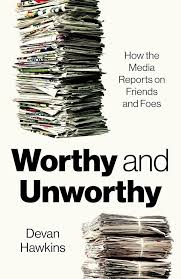 The following is an extract from the introduction to the book Worthy and Unworthy: How the Media Reports on Friends and Foes (2024) by Devan Hawkins.
The following is an extract from the introduction to the book Worthy and Unworthy: How the Media Reports on Friends and Foes (2024) by Devan Hawkins.


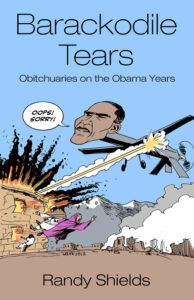


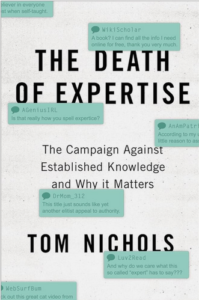

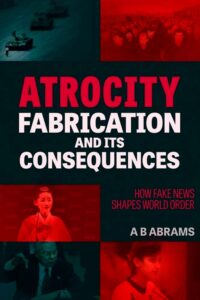
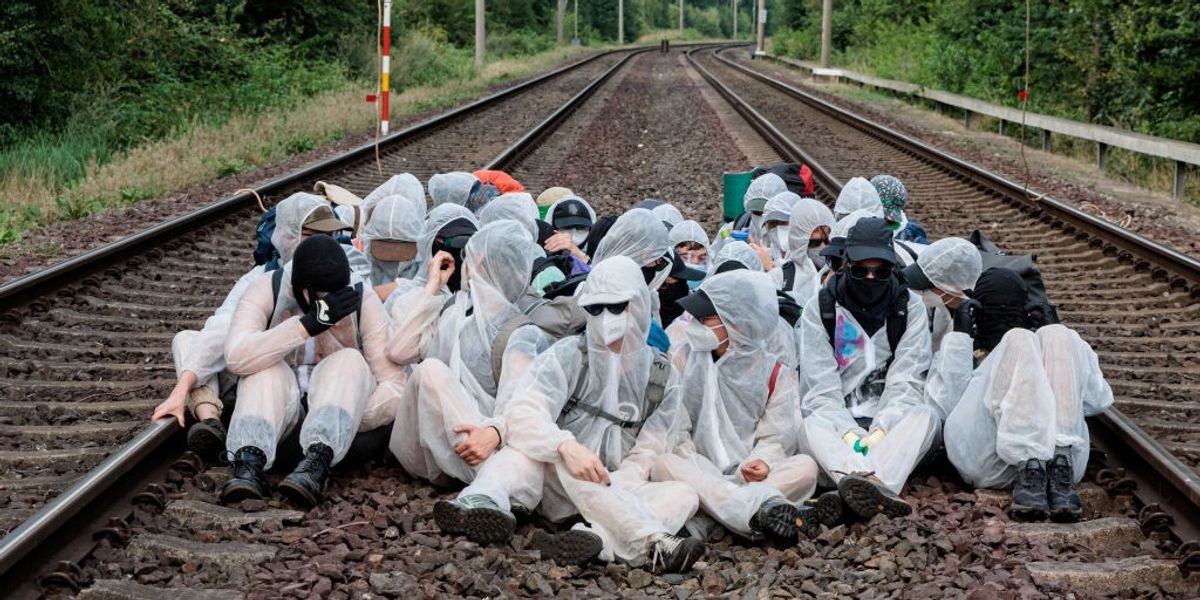
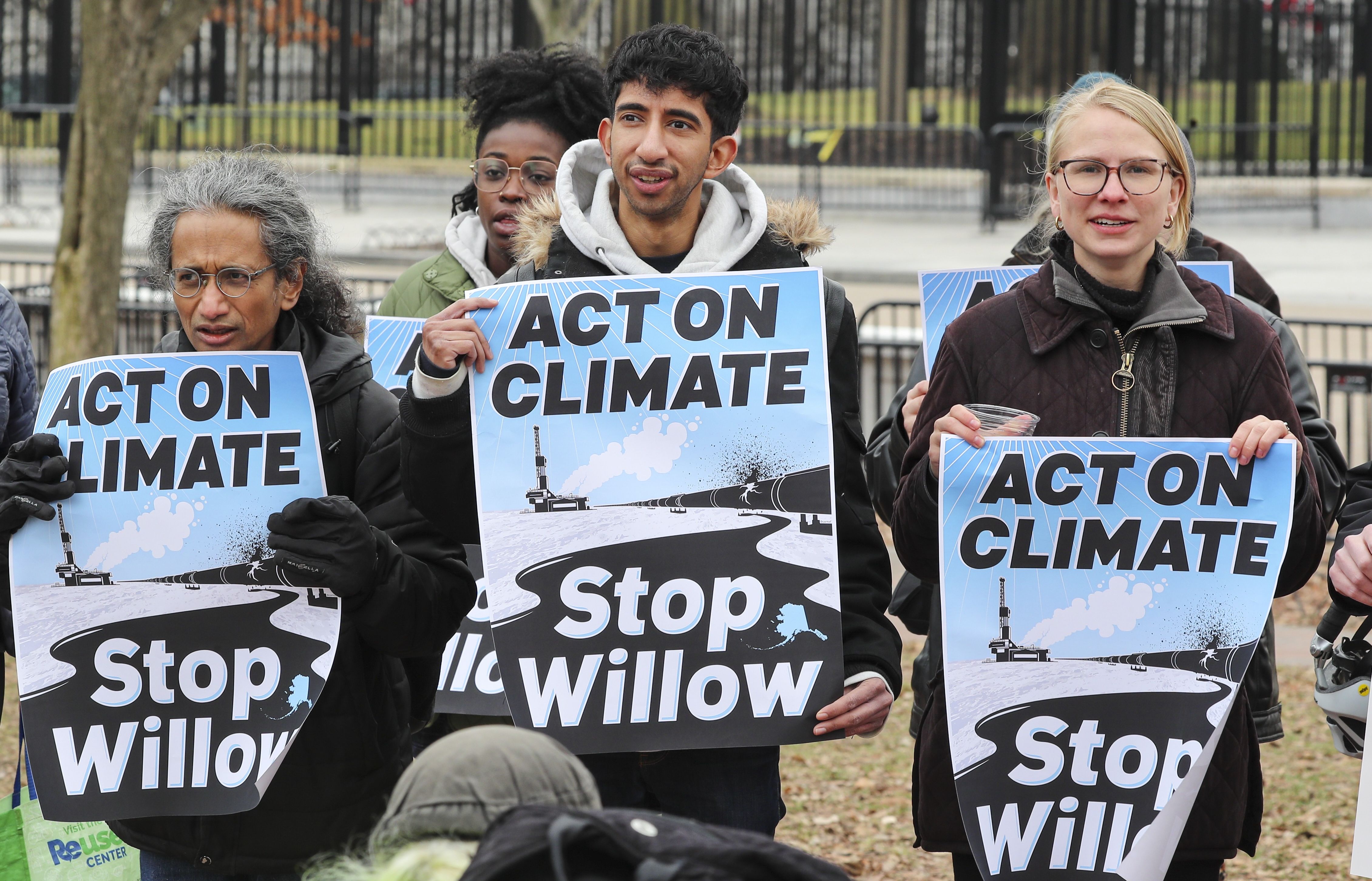



 ?)
?)



